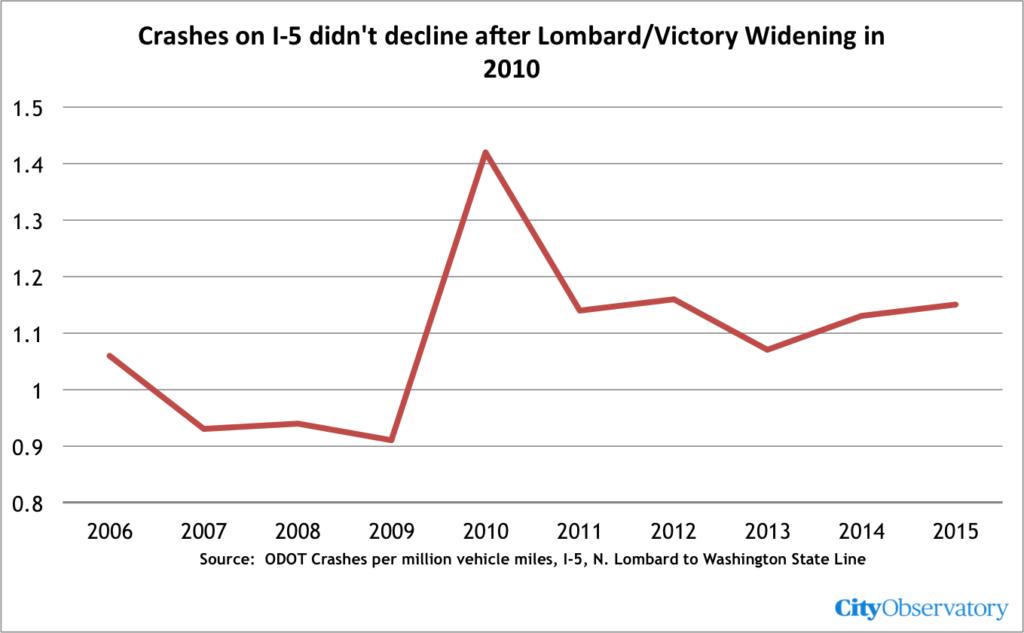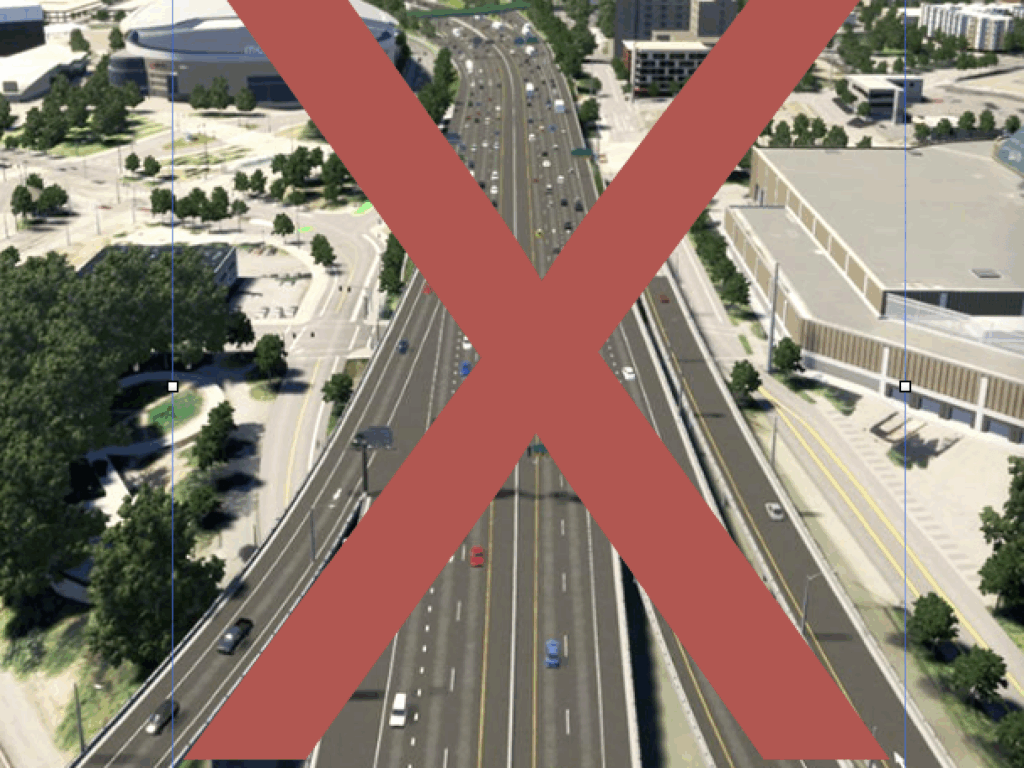What City Observatory did this week
Widening freeways doesn’t reduce crashes or crash related delay. The Oregon Department of Transportation is proposing to spend half a billion dollars to widen a mile-long stretch of Interstate 5 near downtown Portland. They’ve already conceded that the project will do nothing to reduce the recurring daily delay that the region’s commuters find so frustrating. Instead, they’ve argued the project will reduce “non-recurring delay”–the traffic jams associated with freeway crashes (in this area, mostly fender benders). But they’ve actually produced no evidence that shows that a wider road will reduce crashes–it’s just something they’ve assumed as an engineering rule of thumb. A decade ago, Oregon DOT widened a mile long stretch of I-5 just north of the new project area, and we looked the state’s own crash data to see what happened. Not only did widening that roadway not reduce crashes, it was associated with a noticeable increase in crash rates. As a result, there’s no reason to believe that widening I-5 will reduce congestion associated with crashes–which is the fundamental rationale for the project.
Must read
1. Todd Litman takes out the trash that is the latest Inrix congestion cost report. Traffic monitoring firm Inrix has released the latest in a long series of tub-thumping reports that make the utterly fictitious claim that traffic congestion is somehow costing Americans untold billions of dollars each year. As we, and Litman and others have long pointed out, these claims are based on faulty methods that, in part, count the inability to exceed posted speed limits as a cost, and which never explain how one could ever, at any cost, build enough roadway capacity to eliminate slower travel at peak hours. Why do we keep seeing these reports, year-after-year? As Litman observes, Inrix is in the business of selling data about traffic jams, and has a strong self-interest in making the problem seem as dramatic as it can:
The INRIX Research corporation uses various data sets to track roadway conditions. Users receive guidance on how to avoid delays caused by congestion and accidents. As a result, they tend to exaggerate congestion costs in order to enhance the value of their services.
2. Car ownership is dragging American households even deeper into debt. The freedom of car travel is only available to those who can afford to own and operate a car, and as a new report from the US Public Interest Research Group–“Driven into debt”–shows, the high cost of car ownership is increasingly a financial risk for many households. American’s now owe $1.2 trillion in car debt, and amount that has increased 75 percent in the past decade. More Americans are borrowing to purchase both new and used cars, and are taking out longer term car loans. That frequently means they are “underwater” on their loans (owe more than the car is worth), and then frequently when trading in an old vehicle for a new one, households transfer negative equity to their new car loan. A third of all trade-ins had negative equity, with an average of over $5,000 a vehicle rolled into a new car loan.
3. Jennie Schuetz argues for a wealth-building strategy for America’s renters. Our chief wealth building policy in the US has long been the promotion of homeownership. Not only did the housing bubble show the riskiness of that as a policy, the continued and growing wealth disparities in the country are a strong signal that we need other ways of helping American’s achieve some measure of financial security. Scheutz argues that instead of simply suggesting that renters need to become homeowners, we need a broader set of policies, including building more rental housing in high opportunity neighborhoods, promoting more long-term leases that give rent-predictability, and creating new means for households to save and invest.
In the News
The Boston Globe cited our critique of the Inrix congestion cost methodology in its story on traffic congestion in Boston.
The Seattle Times quoted City Observatory’s Joe Cortright in its coverage of the latest Inrix report.


